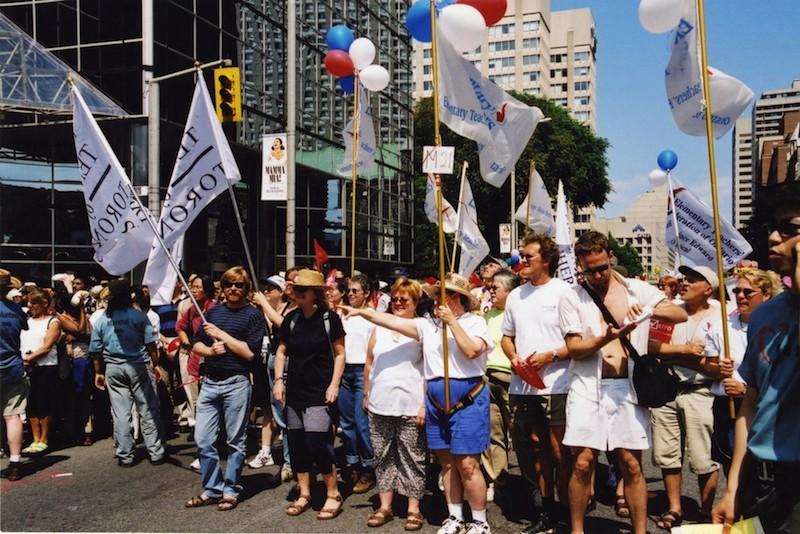
The Beginning: A New Union is Formed
Twenty years ago, a famous handshake at ETFO’s first annual meeting in 1998 sealed the deal on a brand new union that brought together the Federation of Women Teachers’ Associations of Ontario (FWTAO) and the Ontario Public School Teachers’ Federation (OPSTF).
ETFO’s first president Phyllis Benedict recalled the moment. “To look around that room and to see all of those teachers and local leaders, who for a long time were not always on the same page, sign on the same page was momentous. We had to be successful and let our teachers know that we would be there when they needed us for collective bargaining, professional development and legal assistance.”
Given FWTAO’s commitment to advancing women since its formation in 1918, it had taken an immense amount of negotiation to build a new constitution that worked for all members of the newly formed ETFO, ensured women had designated positions on the provincial executive and guaranteed six per cent of funding for women’s programs. Early on, the Defense Fund and the Public Relations/Political Action Fund were established in order to assist bargaining and advocacy work.
The birth of ETFO came at a turbulent time in Ontario politics. A year earlier, there were massive protests as the Mike Harris Progressive Conservative government forced Ontario’s school boards to amalgamate, introduced a new curriculum and new report cards without proper support and pursued ongoing teacher testing.
“We were born in a horrific time with Mike Harris as premier,” says David Clegg, a member of the provincial Executive at the time and later president from 2007-2009, as the new funding formula drove school boards to strip clauses on working conditions, staffing and benefits. “We literally started with strikes in three locals in the first two months. We were able to take on those challenges and that put us on a trajectory that we have built upon.”
Over the next three years, ETFO successfully fought back Harris’ initiatives including teacher testing, legislation to make extracurricular activities mandatory and proposed teacher recertification. A key win happened in 2004 when the federation successfully bargained 200 minutes of preparation time for teachers, ESP and PSP members with the new Liberal government.
Emily Noble, who served as ETFO president from 2002-2007, credits members with that win.
“I was really proud that our members got behind this and said ‘I’m a valued educator and I need preparation time just as my secondary colleagues also need preparation time’.”
Since its formation, the federation has been able to win many improvements in working conditions, defend members’ rights and make equity and social justice a key priority. Current ETFO President Sam Hammond, who has served for a decade in the position, sees the union through the lens of the present day. “Our first three presidents, local leaders and members put in place the foundation and structures to allow us to become the influential power that ETFO is today. ETFO will continue to build on all our strengths, defend and protect publicly-funded education, protect the working conditions of our members and solidify its spot in the country’s labour movement.”
To learn more about ETFO’s history, see the federation’s newly revised publication It’s Elementary.
Valerie Dugale is a member of ETFO executive staff.